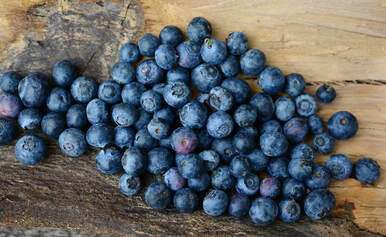 I figured the perfect place to start would be with some of the basics of nutrition. So schools in session and we're starting from the top. Energy Energy. We need it. You know that. I know that. Where do we get energy from? Now there are all sorts of ways that people may feel energized; they may drink a cup of coffee, have a cold shower, exercise, meditate but at a physiological level there are only four different things that our body can use to produce energy. The name given to three of these things is MACRONUTRIENT. Said MAC-RO-NUTRIENT. These are sometimes referred to as macros. We get these from food. The three macronutrients are:
Macros I like to think a lot of you reading this would have heard about macronutrients before. For those that haven’t food is made up in varying amounts of these macronutrients. When we eat our body breaks these substances down through digestion into smaller forms of these nutrients where they then get absorbed. After absorption they enter our bloodstream where they are transported around our body. It is these substances that our body uses to make energy to allow us to do anything and everything. Though they may all provide us with energy there are some distinct differences between the three macronutrients. Firstly, the amount of energy they provide is different. Energy is measured in kilojoules (kJ) or calories (kcal). Per gram, fat (also known as lipids) provides us with 9 calories or 37 kJ, whereas carbohydrate and protein provide us with 4 kilocalories or around 16-17 kJ per gram. As well as providing us with energy these macronutrients also have other functions in our body. Fat is needed for hormone regulation, cell function and the absorption of fat-soluble vitamins and antioxidants. Protein is needed for muscle, skin, nail and hair maintenance and growth; proper functioning of our organs; immune function; hormones, enzymes and transport of substances within our blood. Carbohydrates are used to maintain our blood glucose or blood sugar levels and are normally where we get most of our energy from. Fiber is also a type a carbohydrate however our body doesn't break it down well; therefore it provides very minimal energy. Fiber is really important however for our gut health, keeping us regular and helping to keep us full. In terms of storage in our body fat is stored as, well, fat. Carbohydrates are stored first in our muscle and liver as a substance called glycogen. As our glycogen stores start to fill up excess amounts of carbohydrate can also be stored as fat. Protein has no specific storage form so if it is not needed it can be converted either into a form of carbohydrate or fat/lipid. There is one other substance that our body can use to derive energy and that is alcohol (ethanol). Alcohol provides us with 7 calories or 29 kJ per gram. However, it is not considered a macronutrient as we do not need it. Closing Comment Now the purpose of this post was to give a brief overview of the macronutrients and explain where we get energy from. I also want to make one other point clear and perhaps this is the first thing I can remove some confusion around. No one macronutrient is inherently bad (alcohol is not recommended but this isn’t really a macronutrient). I will save the fat vs carbs discussion for another post but just know that specific macronutrients should not be demonized. You should eat fat, you should eat carbs and you should eat protein. The ratios in which we need these will be different from person to person, but everyone should be having some of each. Thanks for reading. Happy Friday! Marco
1 Comment
It is one of the first things we ever need, we struggle without it, many obsess about it, some take it for granted, some would give anything for it. Food, nutrition, sustenance. It is at the core of our being, yet we hardly even skip over it in primary school and it sometimes gets a mention at secondary school. Other than that when do we learn what we’re meant to eat? It's yet another task lumped onto our parents who themselves may be confused and unsure. For something so important to our lives, so little of our lives are spent learning about it.
From a young age I had a curiosity for nutrition, so I was determined to learn how this whole food thing worked. This curiosity stemmed from my dad who had this thing called diabetes. It meant he had to take medication to stop his diabetes from getting worse and he couldn’t eat certain types of food because if he did he would get sick. That is how I understood it back then. Now as I got older and learned to read, write and use the internet I started to do my own research. I would read books and blog posts, watched videos and TV series trying to get my head around this condition. Looking back I definitely learned a lot about food, but I was never really sure what I should be telling dad to eat. I always just told him not to eat stuff, and never really said he should eat. Through secondary school as I started to realize that maybe I wasn’t going to make the All Blacks straight out of school I was thinking about what I wanted to do after school had finished. I was a top economics and accounting student through secondary school, so it would make sense that I would stay in Wellington, save money, check in my commerce scholarship to help pay for my studies and then get a job doing something related to finance. I had this other idea though of being a dietitian. I had read a lot about nutrition trying to get my head around dad’s condition and was interested in nutrition from a performance perspective, trying to figure out what I needed to eat so I could make the ABs! I spoke with our course adviser and we laid out the options. Commerce, probably finance, three to four years, in Wellington, job prospects were good, pay was good. The other option was become a dietitian. That would involve moving out of Wellington, studying for five years, job prospects were bad, average pay, mainly a female profession and a chance I don’t even get accepted into the course after three years of study. The course adviser directed me one way, I went the other way and have never looked back. Now, three years after I made the move to study to become a dietitian I have started Marco Mollo Nutrition! I have completed my Bachelors of Science in Human Nutrition and have started helping people within my scope with their nutrition needs. I am also returning to the University of Otago to start my Masters in Dietetics this year to become a registered dietitian in New Zealand. One degree completed and another to go I definitely have a much better grasp of diabetes and nutrition in general than the young boy trying to work out how he could help dad. However, I want to make a point that I wish that boy knew. At no point will you know it all. Nutrition is a constantly evolving field and a relatively young science. We know some things, but not everything. I cannot claim nor can anyone else claim to know it all when it comes to nutrition. However, Marco Mollo Nutrition will operate to help you with your nutrition goals, share the things we do know, make known the mistakes made, and provide insight into a topic that without asking about we could spend our entire lives without proper education on. Thanks for reading. Marco |
AuthorWrite something about yourself. No need to be fancy, just an overview. Archives
November 2020
Categories |
